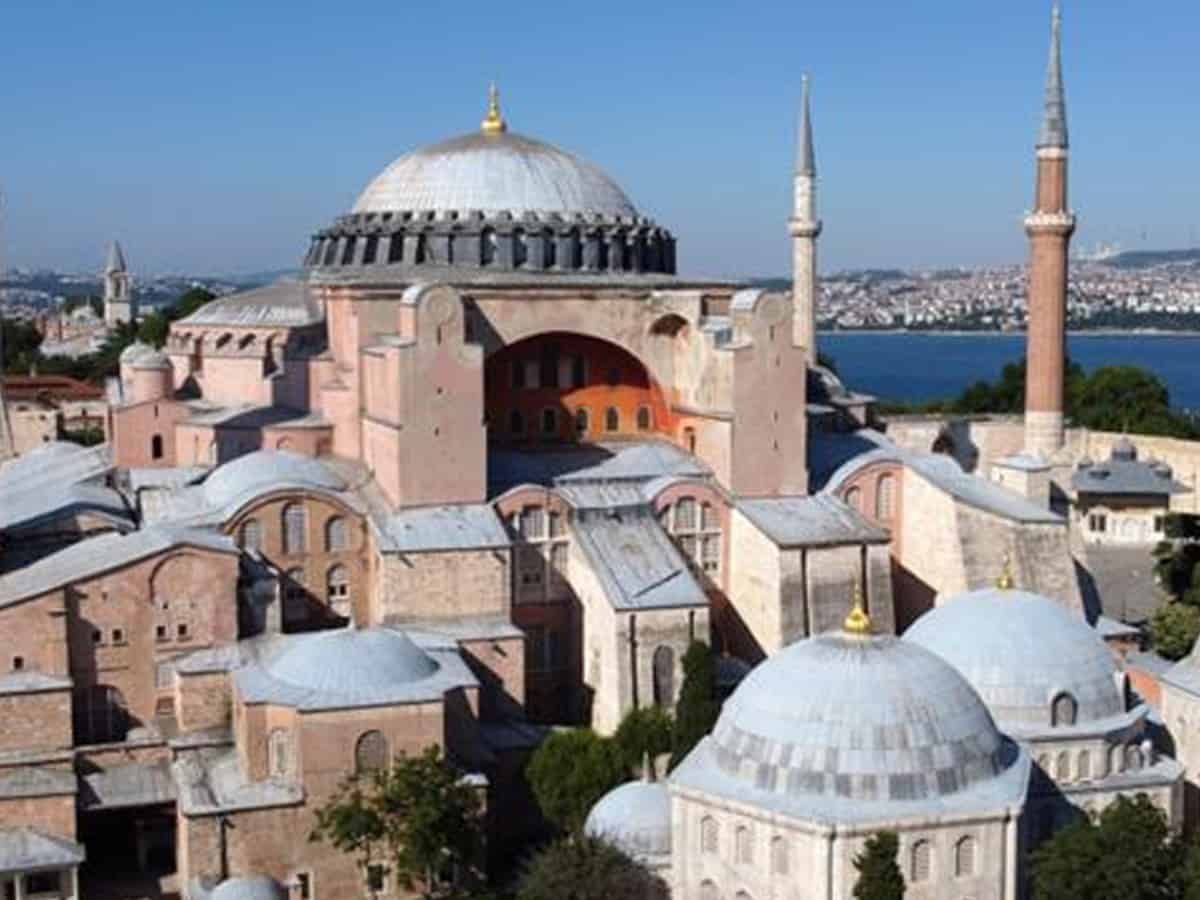Istanbul: A Turkish court on Thursday delayed a decision on whether the Hagia Sophia, a 1,500-year-old Unesco World Heritage site, in Istanbul can be converted into a mosque.
The Council of State – Turkey’s highest administrative body – said it would make a ruling within 15 days, after a hearing lasting just 17 minutes, the BBC reported.
The Hagia Sophia was originally a cathedral before becoming a mosque and then a museum in the 1930s.
It may become a mosque again if the court approves the move.
Turkish President Recep Tayyip Erdogan called for the change during an election rally last year.
Islamists in Turkey have long called for it to be converted, but secular opposition members have opposed the move.
The proposal has prompted international criticism, from religious and political leaders worldwide, said the BBC report.
The head of the Eastern Orthodox Church has criticised the proposal, as has Greece – home to many millions of Orthodox followers.
Culture Minister Lina Mendoni has accused Turkey of reviving “fanatical nationalist and religious sentiment”, insisting no change to a Unesco World Heritage site can take place without being approved by the body’s own intergovernmental committee.
Unesco Deputy director Ernesto Ottone Ramirez agreed that wider approval was needed, in an interview with Greek newspaper Ta Nea.
The UN body had written to Turkey about the proposal, but received no reply, he said.
The Hagia Sophia is a domed building that sits in Istanbul’s Fatih district, on the west bank of the Bosporus.
Justinian I ordered the massive construction built in 532, when the city – then known as Constantinople – was the capital of the Byzantine Empire, also known as the Eastern Roman Empire.
Engineers brought materials from across the Mediterranean to build the colossal cathedral.
Because of its 1,500-year history, the Hagia Sophia holds immense religious, spiritual and political significance for groups inside and outside Turkey.

